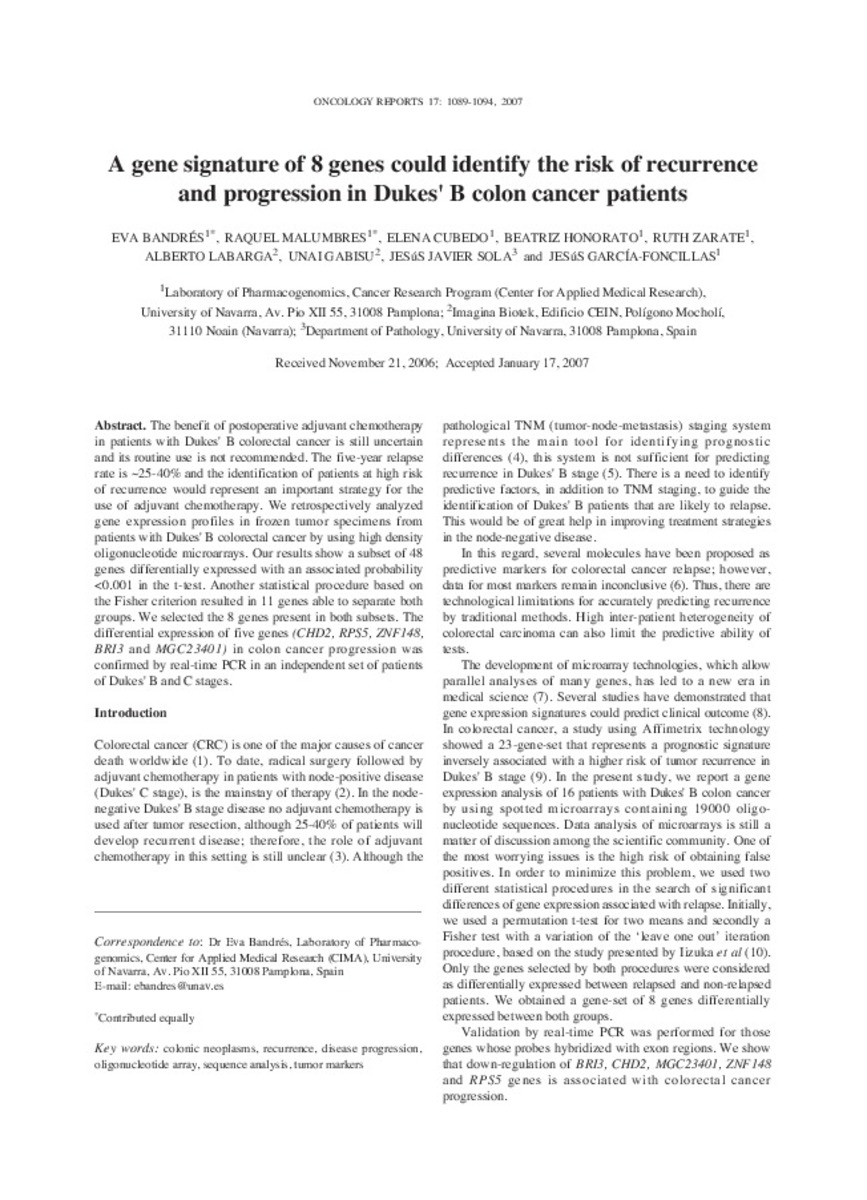A gene signature of 8 genes could identify the risk of recurrence and progression in Dukes' B colon cancer patients
Palabras clave :
Colonic neoplasms
Recurrence
Disease progression
Oligonucleotide array
Sequence analysis
Tumor markers
Fecha de publicación :
2007
Editorial :
Spandidos Publications
Cita:
Bandres E, Malumbres R, Cubedo E, Honorato B, Zarate R, Labarga A, et al. A gene signature of 8 genes could identify the risk of recurrence and progression in Dukes' B colon cancer patients. Oncol Rep 2007 May;17(5):1089-1094.
Aparece en las colecciones:
Estadísticas e impacto
0 citas en

0 citas en

Los ítems de Dadun están protegidos por copyright, con todos los derechos reservados, a menos que se indique lo contrario.








